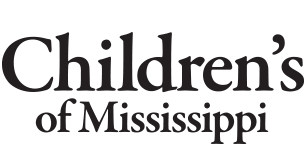I Want To
Contact Us
- For appointments by phone: (601) 984-2700 (Option 1)
- Make an Appointment
Children's Cancer Support Programs
- Children's Cancer and Blood Disorders Home
- Bone Cancer
- Bone Marrow Transplant
- Brain and Central Nervous System (CNS) Cancer
- Germ Cell Tumors
- Hepatoblastoma
- Hodgkin's Lymphoma
- Langerhans Cell Histiocytosis
- Leukemia
- Neuroblastoma
- Non-Hodgkin's Lymphoma (NHL)
- Retinoblastoma
- Soft Tissue Cancer
- Wilms Tumor
- Children's Cancer Support Programs
Treatment Support
Your child’s doctors may recommend a dental exam before your child begins treatment at Children's Cancer Center. Cancer or treatment for it may cause any dental-related infection to get worse, so they’ll want to be sure your child’s mouth is healthy before treatment begins.
Dental concerns
The dentistry clinic on the sixth floor of the Blair E. Batson Tower offers dental care for young patients. This clinic operates under the supervision of board-certified pediatric dentists and their residents who specialize in working with children who have special health needs. Your child’s doctor may recommend you see them. Since they are on site, you may arrange that visit along with an appointment at Children's Cancer Center. The goal is to get your child’s mouth in the healthiest shape possible before they begin cancer treatment.
Any time someone begins cancer treatment, the risk of some mouth and tooth complications arises. Having those potential problems diagnosed and treated before cancer treatment can help correct some dental problems that can become worse during treatment and can potentially lead to life-threatening complications. The pediatric dental team also will talk to you and your child about maintaining good oral hygiene and managing some complications, such as mouth sores, that may arise with cancer. These complications can affect your child’s overall quality of life by making it harder for him to eat and swallow.
If your child needs dental treatment before or during cancer treatment, the pediatric dentistry team works with his doctors to provide help in a manner that is best for your child. If time is a crucial factor, this team can even provide all the needed treatment at one time while your child is under general anesthesia instead of spreading treatment over several visits.
Our dental team also works with children who received high doses of chemotherapy before age 9 and those who had to undergo radiation to their head or neck. Either treatment may have altered tooth and jaw development. Radiation treatment to the head and neck also can harm salivary glands resulting in thickened, reduced or absent saliva. This condition may cause a child to have difficulties in speech and eating and put him at an increased risk for dental decay. Our pediatric dentists, working with your child’s medical team, can provide tips for overcoming some of these problems and refer you to other dental specialists who can provide other specialized dental services such as braces or implants, if needed.
Throughout your child’s treatment, the pediatric dental team will work with your child’s doctor to coordinate dental care. They also are available 24 hours a day to treat any dental emergencies caused by cancer or cancer treatment. After your child completes his cancer treatment, the pediatric dental clinic can continue to provide comprehensive, accessible and coordinated care to your child.
Nutrition
Cancer and its treatment can affect your child’s appetite. Meeting your child’s nutritional needs plays a big part in recovery, so Children's Cancer Center has licensed, registered oncologic dietitians on hand to help you and your child develop a nutrition plan and provide you and your child with tips to help him eat.
You can request a consultation with our dietitians at any point in your child’s treatment. The right eating plan before, during and after treatment can help your child feel better, stay stronger and better cope with treatments. In fact, the dietitian can provide you with tips to help your child deal with some of the side-effects of treatment, such as appetite loss, diarrhea, nausea and vomiting, a sore mouth or throat or constipation. Your child’s doctor also will work with you to limit these side effects as much as possible.
At a consultation, the dietician will work with you and/or your child to discover what he is eating and when, how tall he is, how much he weighs and some of his favorite foods. Then your dietitian can answer questions about how much your child might need to eat and offer tips to help meet that goal. Nutrition counseling focuses on helping your child grow or maintain a healthy weight and helping negate some side effects of cancer treatment such as loss of appetite or loss of weight. Nutrition counseling also may include other health concerns such as diabetes.
ACT Center
Research shows second-hand smoke can contribute to many health problems. If your child’s cancer has motivated you to quit smoking, Cancer Center and Research Institute offers a free smoking cessation program for any Mississippi resident.
The ACT Center for Tobacco, Treatment, Education and Research, located at Jackson Medical Mall, uses medications and counseling to help you succeed. Studies show this is the most effective approach to quitting tobacco use.
All tobacco use, not just smoking, is linked to multiple health problems, including cancer and diseases of the heart, circulatory system and lungs. Counselors and physicians with years of experience in tobacco dependence design your treatment to meet your needs, increasing the likelihood you will quit. Counseling services and medications, all FDA-approved, are free for Mississippi residents, funded by the Mississippi Legislature. You’ll receive an initial evaluation and will be asked to attend six weekly clinic sessions covering topics such as nicotine addiction, health risks and managing stress. Counselors meet with you for follow-up visits for up to a year to help you stay on track and to monitor or adjust your medications. About 100 new clients per month come to the ACT Center, and more than half are tobacco-free six to 12 months later.
Staff can arrange for you to attend counseling sessions at a satellite center closer to your home if you are traveling to Jackson for your child's cancer treatment. A grant from the Mississippi Department of Health funds the satellite centers. For more information, visit the ACT Center website and click on "treatment" or call (601) 815-1180.
Blood bank
Children's Cancer Center has an on-site blood bank to help care for your child if he needs a transfusion of red blood cells, plasma or platelets while being treated. Having a blood bank here means your child probably will not have to wait for doctors to order compatible blood products from another blood bank.
The blood bank is staffed each day until the last patient is through with transfusions. While many people who receive transfusions are battling a blood cancer, others who receive chemotherapy may sometimes need one, too.



 UMMC
UMMC